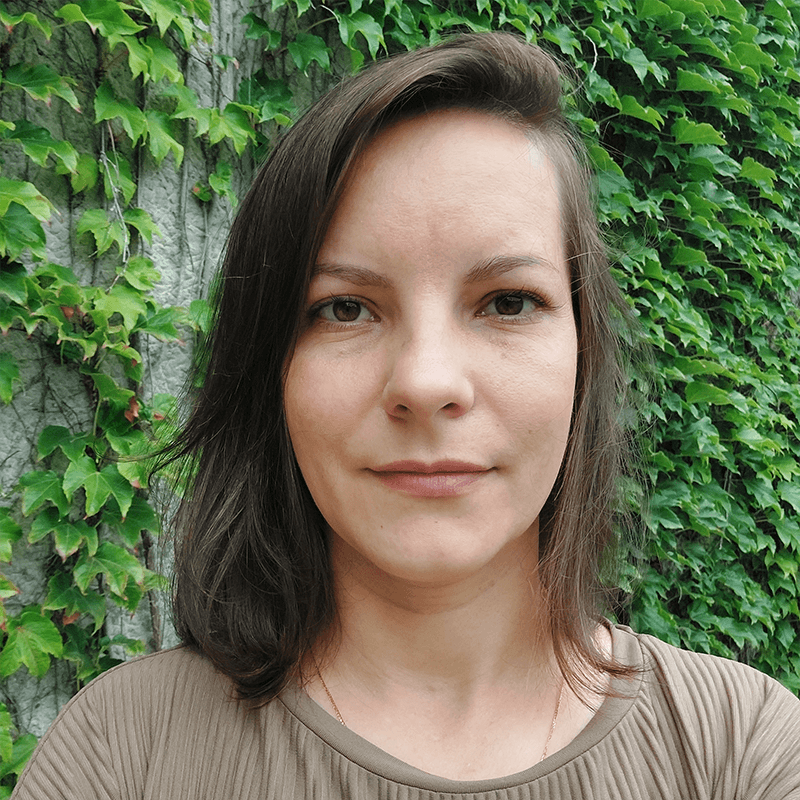University of Melbourne appoints inaugural Mykola Zerov Fellow in Ukrainian Studies

The Faculty of Arts at the University of Melbourne has appointed historian Dr Iryna Skubii as its first Mykola Zerov Fellow in Ukrainian Studies.
The three-year research position in the Faculty’s School of Historical and Philosophical Studies has been generously funded by the Ukrainian Studies Support Fund of the Association of Ukrainians in Victoria (AUV).
The position is named after Mykola Zerov, a famed Ukrainian poet, scholar and critic who, accused of anti-Soviet activities, was interned in Solovki prison camp and executed in 1937.
Dr Skubii is currently undertaking a PhD in history at Queen’s University (Kingston, Canada), in which her research focuses on consumption, environment and materiality during the Ukrainian famines of the 20th century. She previously completed a Candidate of Science in History, equivalent to a PhD, at V. N. Karazin Kharkiv National University in Ukraine.
“Despite state-imposed policies, restrictions and unfavourable environmental conditions, people found ways to survive the famines. Steppes, forests and wetlands became what I call ‘the spaces of survival’,” Dr Skubii said.
“Environmental optics allow us to understand the impact of famines beyond human households and the economy and see how the famine conditions impacted non-human animals and surrounding environments. I am also researching the life-saving role of material objects, particularly during Ukraine’s famine of 1932-33, the Holomodor. When looking from these perspectives, one can see that famines are complex and multi-layered events whose impact extends beyond enormous human suffering to challenge human-environmental and human-material relations.”
Professor Mark Edele, Hansen Chair in History and Deputy Dean at the Faculty of Arts, said Dr Skubii was selected from an extremely strong field of scholars following an international search.
“We are delighted to be welcoming Dr Skubii to the Faculty of Arts as our first Mykola Zerov Fellow in Ukrainian Studies. Dr Skubii’s research into the ecological aspects of Holodomor shed new light on a catastrophe central to Ukrainian national memory today.”
Dr Skubii will start at the University of Melbourne in May 2024, where she will join the University’s Research Initiative on Post-Soviet Space. She will be working on turning her current research into a book, which she hopes will contribute to broadening the existing understanding of the history of famines in Ukraine and other Soviet republics.
“My larger goal with this research is to incorporate the history of communist famines into the global perspective and situate them within the framework of coloniality, food inequality, and human-environment relationships in times of extreme crisis,” she said.
Emeritus Professor Marko Pavlyshyn, the former director of the Mykola Zerov Centre for Ukrainian Studies at Monash University and current member of the Ukrainian Studies Support Fund committee, was instrumental in working together with Professor Edele to establish the new Fellowship.
Emeritus Professor Pavlyshyn has several decades of experience in furthering undergraduate study of Ukrainian language and culture in Australia, but proposed that this new position at the University of Melbourne should be research-focused, to encourage academic exploration into the historical, social and political aspects of Ukraine.
“It was important to us to find a proficient and proven researcher who would contribute to scholarship about Ukraine, but it was also important that they would remain in contact with the Ukrainian community – that they would be a bridge between the community and academia,” he said.
To this end, Dr Skubii will also be working on oral history projects on the Holodomor and cooperating with the recently launched Association of Ukrainians in Victoria Archive.
“I look forward to engaging with memory and public history projects of the Ukrainian diaspora in Australia and New Zealand, particularly with the Association of Ukrainians in Victoria Archive. The research exploration of these archival collections will be crucial for developing Ukrainian studies and expanding the knowledge of the Ukrainian diaspora to a wider audience,” Dr Skubii said.
At a time when there is acute interest around the world in Ukraine’s history, Dr Skubii will also be uniquely placed to contribute her expertise to public discourse.
She said the opportunity to move to Melbourne is allowing her both to broaden the knowledge about Ukraine beyond the field of Ukrainian studies and obtain generous support for her academic projects. She expressed her immense gratitude to the Association of Ukrainians in Victoria for funding the Fellowship.
“I would also like to thank Emeritus Professor Marko Pavlyshyn (Monash University) and Professor Mark Edele (University of Melbourne), whose leadership and hard work made this position a reality,” she said.
“Knowing about the challenges of funding Ukrainian studies in academic institutions worldwide, I am grateful to everyone who supported this much-needed and timely initiative at the University of Melbourne. The support of Ukrainian studies is vital now more than ever, as Ukraine is fighting against Russia’s aggression. The initiative of the Association of Ukrainians in Victoria, the University of Melbourne, and its School of Historical and Philosophical Studies is a powerful example for academic and research institutes globally,” she said.
Thanks to the philanthropic generosity of the Association of Ukrainians in Victoria, the University of Melbourne will be able to make important contributions to the growing international body of research into Ukrainian history, culture and politics.